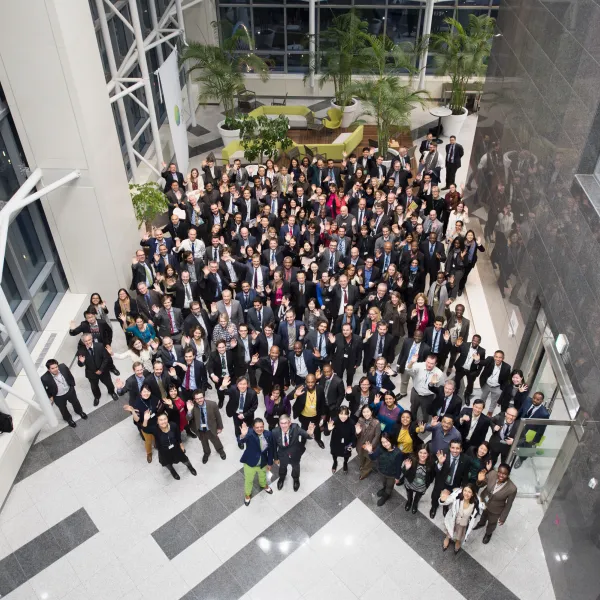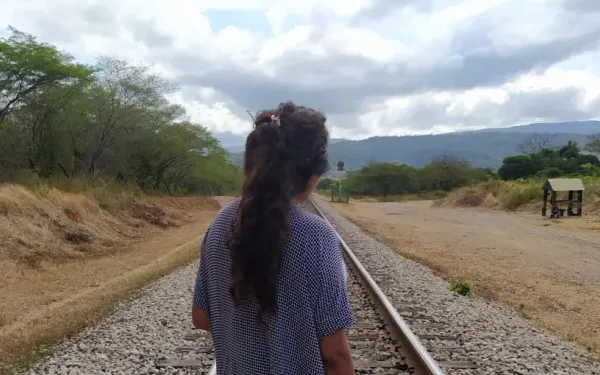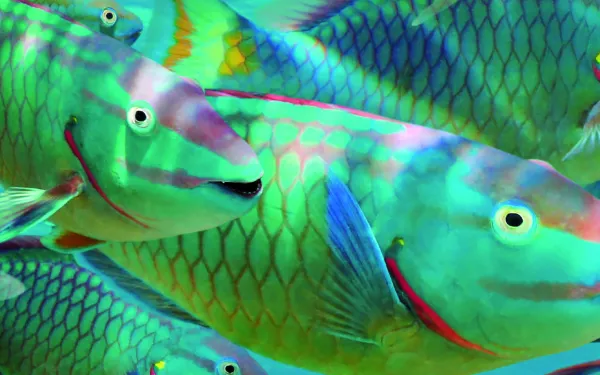
Project
Photo: GCFAdvocating before the Green Climate Fund
The Green Climate Fund is the world's leading multilateral climate finance institution. As such, it has a key role in channelling economic resources from developed to developing nations for projects focused on mitigation and adaptation in the face of the climate crisis.
Created in 2010, within the framework of the United Nations, the fund supports a broad range of projects ranging from renewable energy and low-emissions transportation projects to the relocation of communities affected by rising seas and support to small farmers affected by drought. The assistance it provides is vital so that individuals and communities in Latin America, and other vulnerable regions, can mitigate greenhouse gas emissions and address the increasingly devastating impacts of global warming.
Climate finance provided by the Green Climate Fund is critical to ensure the transformation of current economic and energy systems towards the resilient, low-emission systems that the planet urgently needs. To enable a just transition, it’s critical to follow-up on and monitor its operations, ensuring that the Fund effectively fulfills its role and benefits the people and communities most vulnerable to climate change.
Reports
Read our recent report "Leading participatory monitoring processes through a gender justice lens for Green Climate Fund financed projects" here.
Partners:

Related projects

What you should know about deep-sea mining
Deep-sea mining consists of the exploitation of mineral deposits located deeper than 200 meters in the ocean. Although interest in the technique dates back to 1960, initial ideas were never implemented due to factors such as low metal prices, relatively easy access to raw materials in the countries of the Global South, multiple technical difficulties, and legal uncertainty. On the ocean floor, there are three types of resources of great economic interest: polymetallic nodules, ferromagnesian crusts, and seafloor massive sulfides generated by hydrothermal vents. Currently, interest in these resources has regained strength due to geopolitical changes and greater demand from the non-conventional renewable energy sector. To date, 30 mining exploration contracts have been confirmed in the Pacific, Atlantic, and Indian oceans involving 21 contractors from around the world among companies, government authorities, and science and technology institutes. Unfortunately, we know very little about the ecosystems on the ocean floor and the real impacts of this type of mining. Some scientists believe that the recovery of the habitat would take decades to centuries and that, in some cases, the damage could be irreversible since certain environments are unique. Socio-ecological impacts Although ocean mining could stimulate the economy, the social impacts it entails must be emphasized, especially for the most vulnerable local communities, which depend on natural resources for their livelihoods. Ocean mining has been associated with dilemmas such as foreign interference, cultural disruption, unequal distribution of wealth, loss of access to natural hunting grounds, and alterations in the distribution and migration of species, which would generate variations in the quantity and quality of fishing. Ecological impacts include, among others: an increase of particulate matter in the water, greater mortality of organisms, habitat destruction, the risk of encountering unknown bacteria and viruses in the oceans, the arrival of invasive species through extraction equipment, and the risk of accidental spills caused by the inputs used. The environmental management of this activity is also a concern. The agency in charge of regulating ocean mining is the International Seabed Authority (ISA), founded in 1994 by the United Nations Convention on the Law of the Sea. ISA has jurisdiction over the seabed and subsoil in international waters. It is currently developing a proposal for regulations for ocean mining, which has been faced with multiple challenges. The Deep Sea Conservation Coalition—an alliance of more than 80 organizations that has been operating since 2004 with the objective of protecting the deep sea—questioned whether the proposal establishes that the form of environmental monitoring should depend on ISA or on the contractors. As early as 2018, the coalition stated that independent scientific review and assessment is key to all environmental documents, especially Environmental Impact Assessments and Environmental Monitoring and Management Plans. It is pertinent to mention that, in addition to regulating mining in international waters, ISA is responsible for ensuring the ecological protection of the oceans from the potential harmful effects of activities developed or related to the seabed. The fact that those promoting the projects may carry out environmental monitoring implies the risk of environmental problems due to conflicts of interest. Looking ahead The ocean floor is the largest living area on our planet. There, ecosystems of splendid beauty exist, of which we know practically nothing, and which could suffer irreversible damage from deep-sea mining projects, scientists and conservationists have warned. Healthy oceans play an integral role in global climate regulation and are essential to ensuring food security and livelihoods for millions of people around the world. In addition, significant ignorance about how the deep ocean works make any attempt at Environmental Impact Assessment (EIA) and future projections difficult. In fact, on almost every new dive, new species are discovered. And much remains to be learned about the relationship between the ocean floor and the climate crisis, water acidification, and pressures from anthropogenic (human-induced) activities. Without adequate knowledge of species, ecosystems, ecological processes, and their connections, EIAs cannot be effective. The concept of the common heritage of mankind should be central to any proposal. Besides, it would be prudent to adopt legal protection measures such as the Precautionary Principle, as well as engage in prior exploration and research activities. With all this in mind, ISA has an immense responsibility before the planet and humanity. For the sake of a sustainable future and the natural legacy of future generations, ISA must ensure adequate protection of the oceans. Should deep-sea mining finally be permitted on the high seas, they must pay close attention to prevention and mitigation measures using a precautionary and adaptive approach, in collaboration with other international bodies.
Read more
OECD to investigate human rights abuses filed against the owners of Cerrejón coal mine; BHP, Anglo American and Glencore
Parallel complaints also filed in Ireland against state owned-company for purchasing coal and Dublin-based sales wing of mining enterprise. Multiple National Contact Points (NCPs) of the Organisation for Economic Co-operation and Development (OECD) will begin the process of investigating three international mining giants (BHP, Anglo American and Glencore) and Ireland’s state-owned energy provider, the ESB, over serious human rights abuses and devastating environmental pollution at the Cerrejón coal mine in Colombia. Parallel complaints were filed simultaneously in Australia, Ireland, Switzerland and the UK by the Global Legal Action Network (GLAN) with the support of international development agency Christian Aid Ireland as well as Colombian and international human rights and environmental NGOs - CINEP, CAJAR, AIDA, ABColombia and ASK. If successful, the three companies which jointly own the Cerrejón mine will have to take steps to comply with the OECD Guidelines for Multinational Enterprises, including progressively closing down the mine in full and environmental restoration. The complaints against the mining giants also call for the full compensation of communities for the harms they have suffered. The complaints outline how the Cerrejón mine, one of the largest open-pit mines in the world, is linked to the forced displacement of indigenous and Afro-Colombian communities and the widespread, persistent and extreme pollution of the air and water in the vicinity of the mine. High concentrations of harmful metals, which can cause diseases such as cancer, were found by Colombia’s Constitutional Court to exist in the blood of those living nearby. The complaints point to Cerrejón’s failure to comply with multiple Colombian court judgments against it. In September, several prominent UN human rights experts called for some of the mine’s operations to be suspended following a request to intervene by Wayuu indigenous people. The complaints allege that the parent companies of the Cerrejón mine, as its joint owners, are responsible under the OECD Guidelines for Multinational Enterprises for the harms caused by its operations. Separate complaints have also been lodged against Dublin-based Coal Marketing Company (CMC), which is the exclusive marketer of coal from the Colombian mine, as well as Ireland’s Electricity Supply Board (ESB), which has been a major purchaser of the mine’s coal. In 2019, the UN Committee on the Elimination of Racial Discrimination recommended that Ireland “consider stopping purchasing coal from the Cerrejón mine”. All five complaints have been lodged with the relevant National Contact Points for the OECD, which are tasked with ensuring that companies comply with the OECD Guidelines for Multinational Enterprises. Director of GLAN Dr Gearóid Ó Cuinn said: “These parallel complaints in four different countries point to a systematic failure to respect basic human rights standards from the extraction, to the marketing, to the purchasing of Cerrejon coal. The long-standing abuses at the mine have been so egregious that there is no way for enterprises to respect human rights law and do business with Cerrejón.” Sorley McCaughey of Christian Aid Ireland said: “We see the impact that corporate human rights abuses are having in every corner of the world and the Cerrejón case underscores the inadequacy of voluntary guidelines for multinational companies. Governments globally, including the UK and Ireland, must introduce mandatory human rights and environmental due diligence legislation for companies to ensure they do not undermine the human rights of workers or the communities in which they work.” Rosa María Mateus Parra, lawyer with CAJAR, a Colombian human rights organisation and signatory to the complaints, said: “This is a striking example of the role played by large multinational companies in fuelling injustice. The people of La Guajira have borne the huge social and environmental costs of the mine, while harmful fossil fuel coal is exported around the world in the midst of the climate crisis and a small number of companies record huge profits.” Notes for editors If upheld the complaints filed in Australia, Switzerland and the UK would require joint-owners BHP, Glencore and Anglo American to close down the Cerrejón mine and compensate the affected communities for the harms it has caused. If upheld the separate complaint in Ireland against Dublin-based CMC would require it to stop selling Cerrejón coal. The complaint was submitted by Global Legal Action Network (GLAN), supported by Christian Aid Ireland, the Centro de Investigación y Educación Popular (CINEP), the Colectivo de Abogados ‘José Alvear Restrepo’ (CAJAR), Interamerican Association for Environmental Defense (AIDA), ABColombia and ASK - Arbeitsgruppe Schweiz Kolumbien. The Global Legal Action Network (GLAN) is a non-profit organisation that works to pursue innovative legal actions across borders to challenge powerful actors involved in human rights violations and systemic injustice by working with affected communities. GLAN has offices in the UK (London) and Ireland (Galway) | @glan_law | www.glanlaw.org. press contacts: Victor Quintanilla (México), AIDA, [email protected], +5215570522107 Dr Gearóid Ó Cuinn (Director), GLAN, [email protected], +447521203427
Read more
Fact Sheet: SPAW Protocol (Specially Protected Areas and Wildlife)
The Convention for the Protection and Development of the Marine Environment in the Wider Caribbean Region (Cartagena Convention) and its Protocol for Specially Protected Areas and Wildlife (SPAW Protocol) establishes that Contracting Parties have the obligation to regulate the protection of the vulnerable species and ecosystems of the region.The revised criteria for the nomination of species (1, 3, 4, 5, 6 and 10) determines the need to include essential species for vulnerable ecosystems - such as coral reefs, mangroves and seagrasses - in the species lists of Annexes II and III of the SPAW Protocol.The national or regional measures imply in a different way protection processes, biological monitoring of species, fishing recovery zones; analysis of catch data, health status of ecosystems, population dynamics and size; closed periods; and regulation of the capture, possession, transport, trade or total prohibition of the use of the species.In 2018, the Scientific and Technical Advisory Committee (STAC) prioritized the evaluation of herbivorous fish and currently the Species Working Group carries out the evaluation of parrotfish through the integration and analysis of scientific and regulatory data.Eleven of the 17 countries that have signed the Protocol have generated regulatory measures on herbivorous fish. Some regulatory experiences are in force, others are not, and there are those that came into force recently. Download the Fact Sheet in EnglishDownload the Fact Sheet in SpanishDownload the Fact Sheet in French
Read more